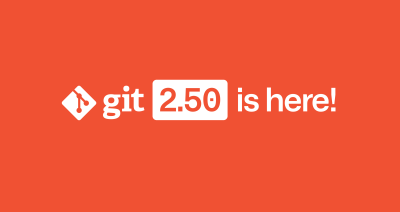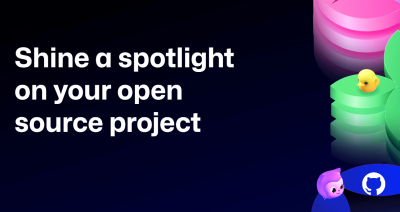This month on The ReadME Podcast: Balancing openness and control
Open vs. control: the paradox of open source. We take a look at the expectations of open source, how the definition has evolved, and when ‘closed to contributions’ is the right move. Tune in to the latest episode of The ReadME Podcast for more.

Subscribe to The ReadME Podcast on Apple Podcasts, Spotify, or wherever you listen to podcasts.
“It’s paradoxical that we preach openness, except when it’s how we use the software. I get it, we think of open source as being ownerless, permissionless, and accessible by anyone. But with analytics, the model is very much built around ownership…”
Scarf founder, CEO, and maintainer Avi Press is trying to solve a familiar problem in open source: the need to understand who is actually using the open source projects that we maintain. But the desire from a project maintainer to understand this often brushes up against expectations of privacy and community control. For Press, the issue is managing this information and sharing access with the community. “My argument here is that if anyone is going to have access to it, maintainers must be one of those groups of people,” Avi said on this month’s episode of The ReadME Podcast. “I think that if we want to see open source thrive in the long run, we need to understand the value and the impact it has on the world.”
The episode takes a high-level look at different expectations of open source, how the definition has evolved, and what maintainers can do to better serve their communities. The ReadME Project’s Senior Editor, Mike Melanson, joins hosts Martin Woodward and Neha Batra to discuss his latest featured story, “How ‘open’ should your open source be?” and shares insight from the maintainers he interviewed in his reporting. Mike highlights why Ben Johnson, maintainer of Litestream, decided to keep his project mostly “closed to contributions,” and provides his perspective on why this still fits within the parameters of open source.
We also hear from Jessica Januik, Senior Software Engineer at Google, about why humor is so powerful when building team chemistry. From galvanizing her team at work to empowering the communities around her, Jessica shares the impact that playfulness has had on her life.
| The open/closed equilibrium | Our current episode discusses striking a balance between openness and control in open source projects, preserving the integrity of community insights, and how humor can transform communities. |
| Fusing tech and progress | How open source is powering nuclear fusion research, advice for fortifying your career against change, and practical tips on using GitHub. |
| Innovation without barriers | Reframing disability and accessibility, playing Minecraft with your eyes, and what AI means for the future of accessibility. |
| Co-maintaining openness | The benefits of collaborative maintainership, lessons learned from vintage technology, and tips for getting started with community building. |
To hear all this, and more, tune in to this month’s episode of The ReadME Podcast. Plus be sure to join us on May 23rd as we celebrate Maintainer Month with a special bonus episode with Kubernetes superstar Kelsey Hightower. Don’t miss out! Subscribe to The ReadME Podcast now on Apple Podcasts, Spotify, or wherever you listen to podcasts.
Tags:
Written by
Related posts

Highlights from Git 2.50
The open source Git project just released Git 2.50. Here is GitHub’s look at some of the most interesting features and changes introduced since last time.

4 trends shaping open source funding—and what they mean for maintainers
Get insights on the latest trends from GitHub experts while catching up on these exciting new projects.

Shine a spotlight on your open source project
Celebrate #MaintainerMonth with two big opportunities to showcase your open source project at GitHub Universe and WeAreDevelopers World Congress. Applications are open. Don’t miss out!